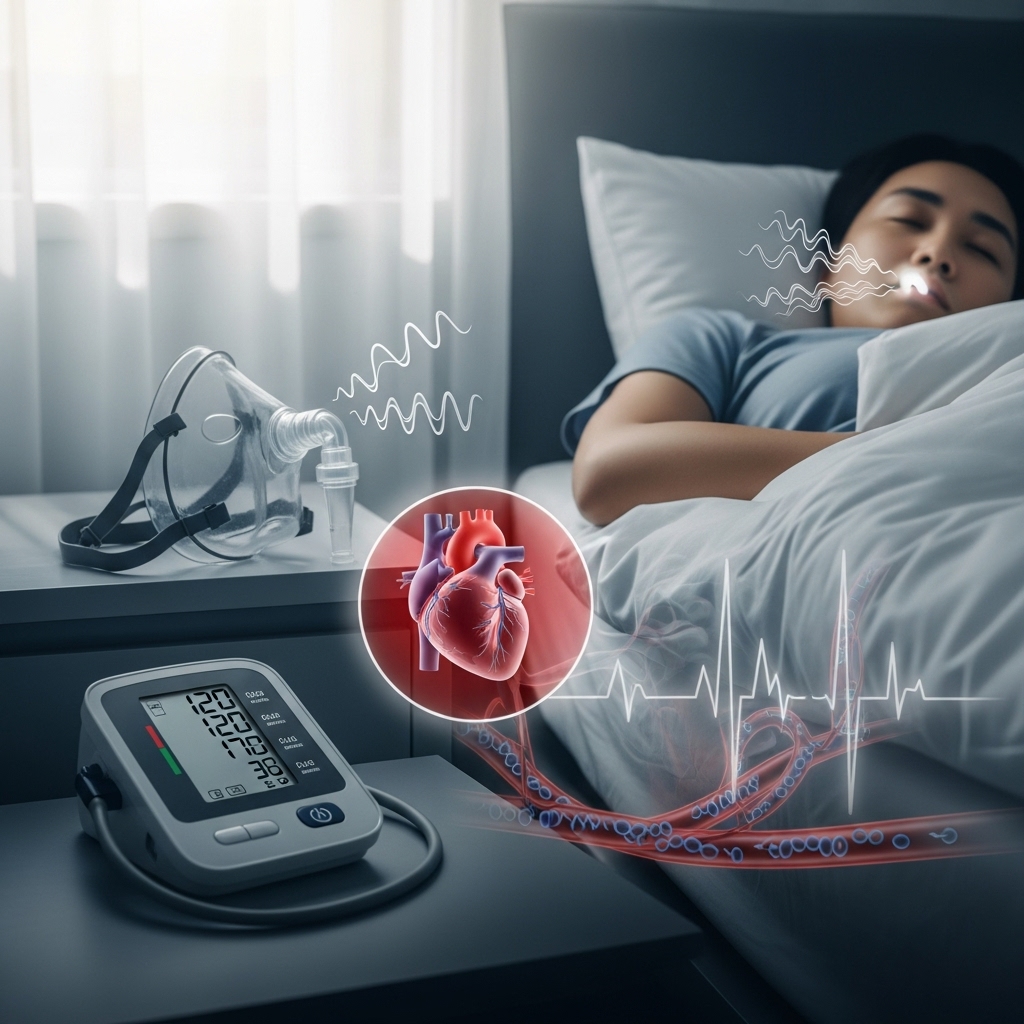Sleep is essential for maintaining overall health, but when sleep is disrupted by conditions like sleep apnea, it can lead to serious health issues, including high blood pressure. Understanding the connection between sleep apnea and hypertension is crucial for managing both conditions effectively. This article explores how sleep apnea affects blood pressure, the risks involved, and potential treatments to improve health outcomes.
Sleep apnea is a common sleep disorder characterized by repeated interruptions in breathing during sleep. These interruptions, known as apneas, can last from a few seconds to a minute and can occur multiple times throughout the night. The most common type is obstructive sleep apnea (OSA), which occurs when the muscles at the back of the throat fail to keep the airway open.
Signs and Symptoms
Common symptoms of sleep apnea include loud snoring, gasping for air during sleep, waking up with a dry mouth, morning headaches, and daytime sleepiness. If left untreated, sleep apnea can have serious health consequences, including cardiovascular problems and high blood pressure.
The Connection Between Sleep Apnea and High Blood Pressure

Sleep apnea and high blood pressure, or hypertension, often go hand in hand. When breathing stops during sleep, the level of oxygen in the blood drops, which signals the brain to increase blood flow to vital organs. This response raises blood pressure. Over time, these repeated surges can contribute to persistent high blood pressure.
Hypertension and Nighttime Breathing Problems
Research shows that people with untreated sleep apnea are more likely to develop hypertension. Nighttime breathing problems lead to repeated episodes of low oxygen, prompting the body to respond by narrowing blood vessels to maintain oxygen supply to the heart and brain, causing blood pressure to rise.
Cardiovascular Risks of Sleep Apnea
Obstructive sleep apnea is associated with increased cardiovascular risks. Hypertension resulting from sleep apnea can lead to conditions such as heart attack, stroke, and heart failure. The strain on the cardiovascular system from frequent drops in blood oxygen levels puts additional pressure on the heart, making it work harder than normal.
Managing High Blood Pressure Through Better Sleep

by Qihai Weng (https://unsplash.com/@_may_)
Improving sleep quality is a critical step in managing high blood pressure. Here are some ways to manage both sleep apnea and hypertension:
Sleep Apnea Treatment
Effective treatment of sleep apnea can significantly lower blood pressure. Continuous Positive Airway Pressure (CPAP) therapy is the most common and effective treatment for obstructive sleep apnea. CPAP machines keep the airway open by providing a constant stream of air through a mask, preventing apneas and improving sleep quality.
CPAP Benefits for Hypertension
Using a CPAP machine regularly can reduce high blood pressure in sleep apnea patients. Studies show that consistent CPAP use helps normalize breathing patterns during sleep, leading to lower blood pressure levels both at night and during the day.
Lifestyle Changes
In addition to CPAP therapy, certain lifestyle changes can help manage both conditions. These include maintaining a healthy weight, exercising regularly, reducing salt intake, avoiding alcohol and smoking, and managing stress. These changes can improve overall health and reduce the severity of sleep apnea symptoms.
Seeking Medical Advice
If you suspect that you have sleep apnea or high blood pressure, it’s important to seek medical advice. A healthcare professional can provide a diagnosis and recommend appropriate treatments. Sleep studies can determine the presence and severity of sleep apnea, while regular blood pressure checks can monitor hypertension.
Diagnosis and Monitoring
A sleep study, also known as a polysomnogram, is the most reliable method to diagnose sleep apnea. It records various body functions during sleep, including breathing patterns, blood oxygen levels, and heart rate. Monitoring blood pressure at home or through regular check-ups with a doctor can help track hypertension.
Conclusion
Understanding the link between sleep apnea and high blood pressure is essential for effective management of both conditions. By addressing sleep apnea through treatments like CPAP and making lifestyle changes, individuals can lower their blood pressure and reduce cardiovascular risks. If you experience symptoms of sleep apnea or high blood pressure, consult a healthcare provider for a comprehensive evaluation and treatment plan.
Remember, better sleep leads to better health, so take the necessary steps to address sleep apnea and manage hypertension effectively. Prioritizing sleep health can make a significant difference in your overall well-being and quality of life.





